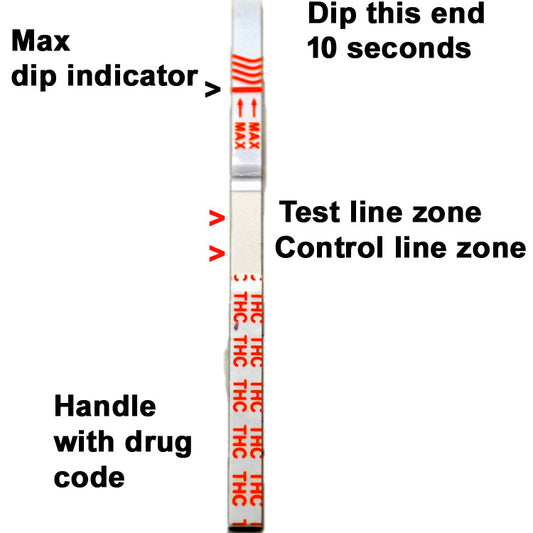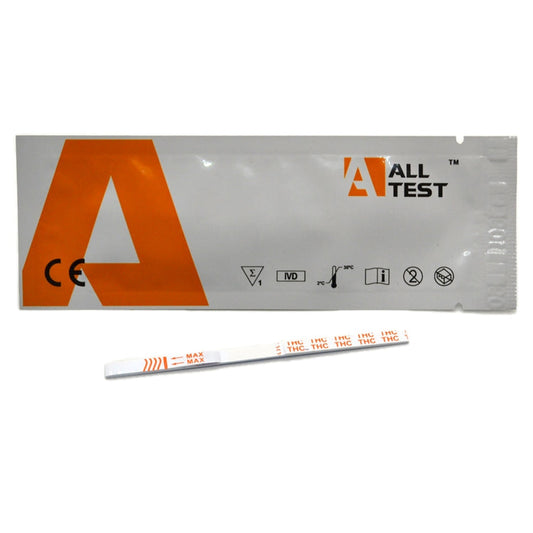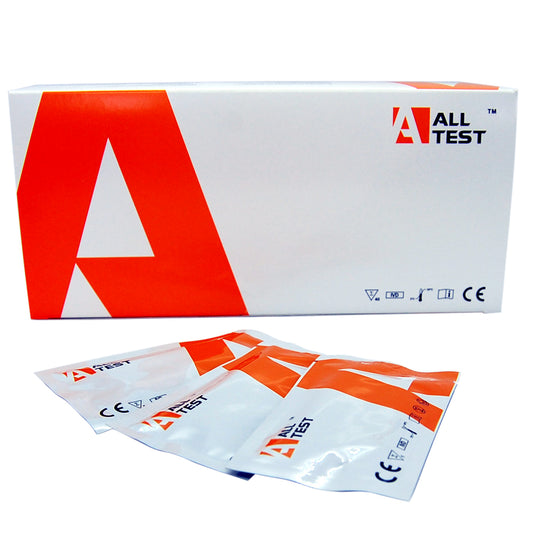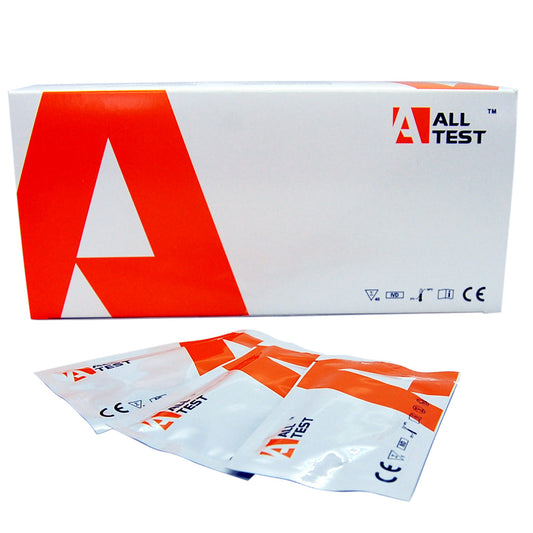Collection: THC Cannabis Urine Tests
-
ALL TEST Cannabis THC Urine Drug Test Strips
4.0 / 5.0
(1) 1 total reviews
Regular price From £2.40 GBPRegular priceUnit price / per -
ALLTEST Ultrasensitive Cannabis Urine Drug Test Strips
5.0 / 5.0
(1) 1 total reviews
Regular price From £9.99 GBPRegular priceUnit price / per -
ALL TEST Cannabis THC Urine Drug Test Cassettes Pre-Order Only Delivery Not Until April 2024
4.0 / 5.0
(1) 1 total reviews
Regular price From £4.99 GBPRegular priceUnit price / per -
ALL TEST Cannabis THC Urine Drug Test Cassettes Special Offer Expiry End March 2024
4.0 / 5.0
(1) 1 total reviews
Regular price From £0.99 GBPRegular priceUnit price / per£1.99 GBPSale price From £0.99 GBPSold out
THC urine tests to detect Cannabis use
THC (tetrahydrocannabinol) is the primary psychoactive component of cannabis, and its presence in urine is often tested to detect recent cannabis use. Cannabis urine tests are commonly used in workplaces, schools, and sports to ensure individuals are not using cannabis or other drugs that may impair their performance or judgment.
Urine tests for THC typically use an immunoassay, which is a biochemical test that detects the presence of a specific substance in a sample. The test works by using antibodies that are designed to bind to THC metabolites, which are produced when the body breaks down THC after it is ingested. If the urine sample contains THC metabolites, the antibodies will bind to them, producing a measurable signal that indicates a positive result.
There are different types of THC urine tests available, including the dipstick test, which is a quick and easy test that can be done in a doctor's office or at home. This type of test involves dipping a strip of paper into a urine sample and waiting for a few minutes for the results. Another type of test is the laboratory-based urine test, which is more accurate and reliable than the dipstick test. This test involves sending a urine sample to a laboratory, where it is analyzed using more sophisticated techniques.
It's important to note that THC urine tests can detect the presence of THC metabolites in urine for several days or even weeks after cannabis use, depending on the frequency and amount of use. This means that even if a person has not used cannabis recently, they may still test positive on a urine test. Additionally, urine tests do not measure impairment, meaning that a positive result does not necessarily indicate that the individual is under the influence of cannabis at the time of testing.
How long after Cannabis use can THC be detected in urine?
The detection window for THC in urine depends on various factors such as frequency and amount of use, metabolism, and individual differences. Generally, THC metabolites can be detected in urine for several days to several weeks after the last use of cannabis. For infrequent cannabis users, THC can typically be detected in urine for up to three days after use. For regular cannabis users, THC metabolites can be detected in urine for up to a month or even longer after the last use. Heavy or chronic cannabis users may have detectable THC in their urine for up to 90 days after the last use.
It's important to note that THC can be detected in different parts of the body for different lengths of time. For example, THC can be detected in blood and saliva for a shorter period than in urine, typically up to 24 hours after use. Additionally, THC can be detected in hair samples for months after use, although hair testing is less common than urine testing. It's also important to note that urine tests for THC can occasionally produce false positives (very rare) or false negatives. Factors that can affect the accuracy of the test include the type of test kit used, the sensitivity of the test, and the presence of other compounds that can interfere with the test results.
In summary, THC urine tests are commonly used to detect recent cannabis use and are often used in workplaces, schools, and sports to ensure individuals are not using drugs that may impair their performance or judgment. However, it's important to note that these tests can detect THC metabolites in urine for several days or weeks after use, and a positive result does not necessarily indicate impairment at the time of testing.






